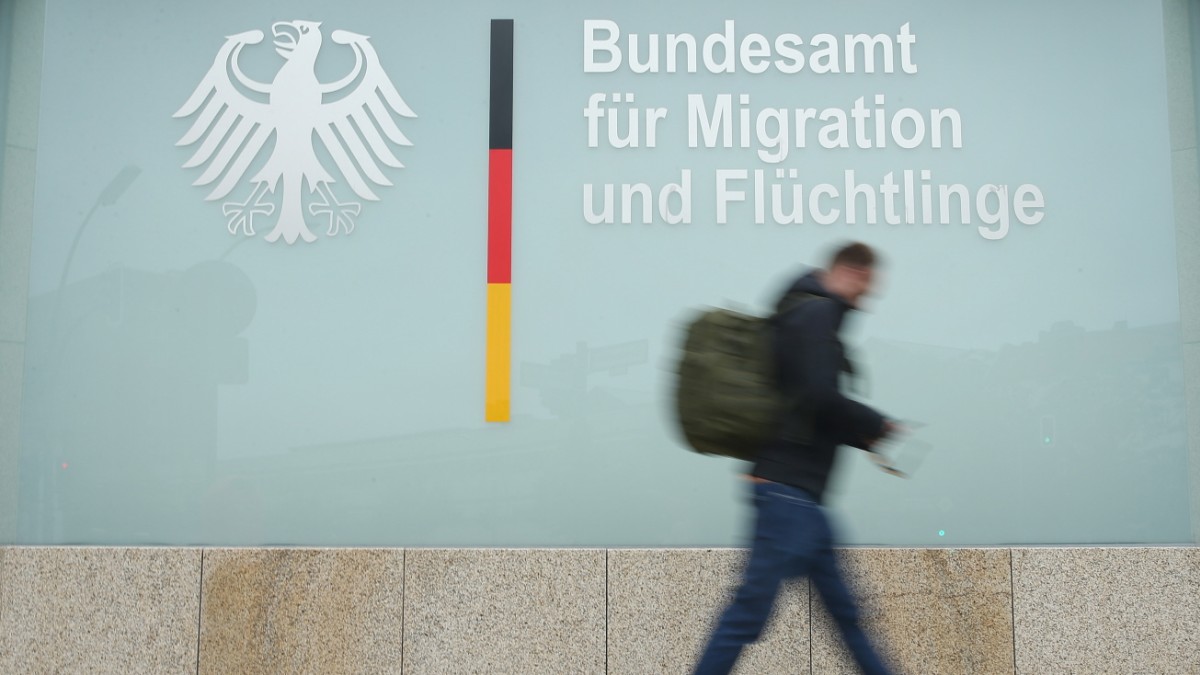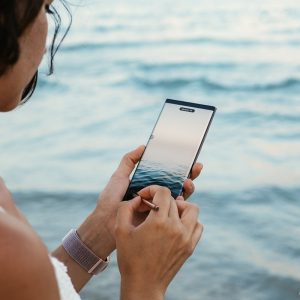In Germany, data protection is supported more than in any other country, but so far it has only been applied to a limited extent to refugees and their mobile phones. Country codes for incoming calls, the tone in which the owner wrote messages, and logins for dating apps: The Federal Office for Migration and Refugees (Bamf) is allowed to read this information from newcomers’ devices without justifiable suspicion of false statements about their origin and identity verification data.
Since the asylum law was amended in 2017, Bamf has been reading the smartphones of refugees at the start of the asylum procedure. The Berlin Administrative Court has now declared that data collection in advance, that is, without any direct judicial use, is illegal.
At the request of S. Zed, the court confirmed the outcome of the proceedings. No written reason for the ruling has been published. Bamf is awaiting the court’s reasoning with its public statement, which is not yet available.
The Freedom Rights Association (GFF) and attorney Matthias Lennert have filed a lawsuit on behalf of a 44-year-old man from Afghanistan. “On my cell phone there are private messages with my family. I had no choice but to agree to the analysis and didn’t even know what exactly was going on with my data,” she said in the process, according to a GFF press release.
“For people who do not have a passport or identity documents, a mobile phone can be the only source of identification,” says Kristina Banach, a spokeswoman for PAMF. Until now, cell phone data could be assessed if the refugees did not present a passport – even if there was no reasonable doubt that they were lying.
Rarely are there contradictions with the refugees’ statements
Refugees’ mobile phones must be unlocked in order to collect information from them: officers then connect them to a computer that reads the data for up to 45 minutes. Next, Bamf receives the “Report of Results”. Banach stresses that this will not replace the individual hearing of refugees. The assessment is always carried out by a fully qualified attorney and checks whether a report is necessary in each individual case to clarify the identity. According to a study by the GFF, in only 2% of cases where mobile phone data is evaluated, it contradicts refugee statements.
Before the assessment, the refugees sign an acknowledgment of consent, but: “It says nothing exactly about what happens during the analysis,” says GFF attorney Leah Beckman. The obligation of refugees to cooperate is enshrined in law; If they are refused, many of those affected fear dire consequences for their asylum application. Not knowing exactly what’s checking in your cell phone is stressful, Beckman says: “You don’t know what’s going on in there, you hand your cell phone over, and you describe feeling helpless and at the mercy of things.”
Officers want to know things that would normally be on a passport — by analyzing contacts, incoming and outgoing calls, messages, browser history, geospatial data from photos, and login data for apps. “We don’t know the apps used to record login data in plain text — but the training documentation also mentions dating apps, for example,” Beckmann says.
The apps reveal more than just assumed information about the identity and origin of refugees. Beckmann sees this as a problem. However, she describes the analysis of text messages as particularly sensitive: Linguists have expressed significant concerns about whether automatic language recognition works well enough to make statements about the origin of refugees. It is not clear what training data the speech recognition is programmed on, and which languages and dialects work well.
The derivation of the origin from incoming and outgoing calls is also criticized. Especially for refugees who have fled for some time and whose relatives may also be outside their home country, area codes for incoming and outgoing calls are of limited use only.
The analysis has potential for abuse: Login data could provide information on how refugees were found on social media, which would not be allowed to be used as evidence for further search by civil servants. Geographical data can also provide information about the escape route of those affected. Bamf decision makers see this information, but are encouraged to ignore it when actions relate to information about people’s journey history. It is unlikely that this will be possible in practice.
Court calls for more moderate means
Identity verification is important to Bamf because it can be the basis for decisions in the asylum procedure. Mobile data carriers’ reading can also confirm data about the identity of refugees, and according to spokeswoman Banach, this could also be relevant to the procedure.
“The court now says that these cell phone data assessments are only possible if there are no more benign means,” says GFF Beckman’s attorney. As a more moderate measure to verify the origin and identity of refugees, additional documents can be requested or language analyzes performed by interpreters, for example.
If Bamf appeals, the case ends directly before the Federal Administrative Court. “Then Germany’s highest administrative court can decide the legality of Bamf’s current cellular data assessments. This would be an important step for refugee data protection,” says Matthias Lehnert, the plaintiff’s lawyer in Berlin.

“Devoted gamer. Webaholic. Infuriatingly humble social media trailblazer. Lifelong internet expert.”





